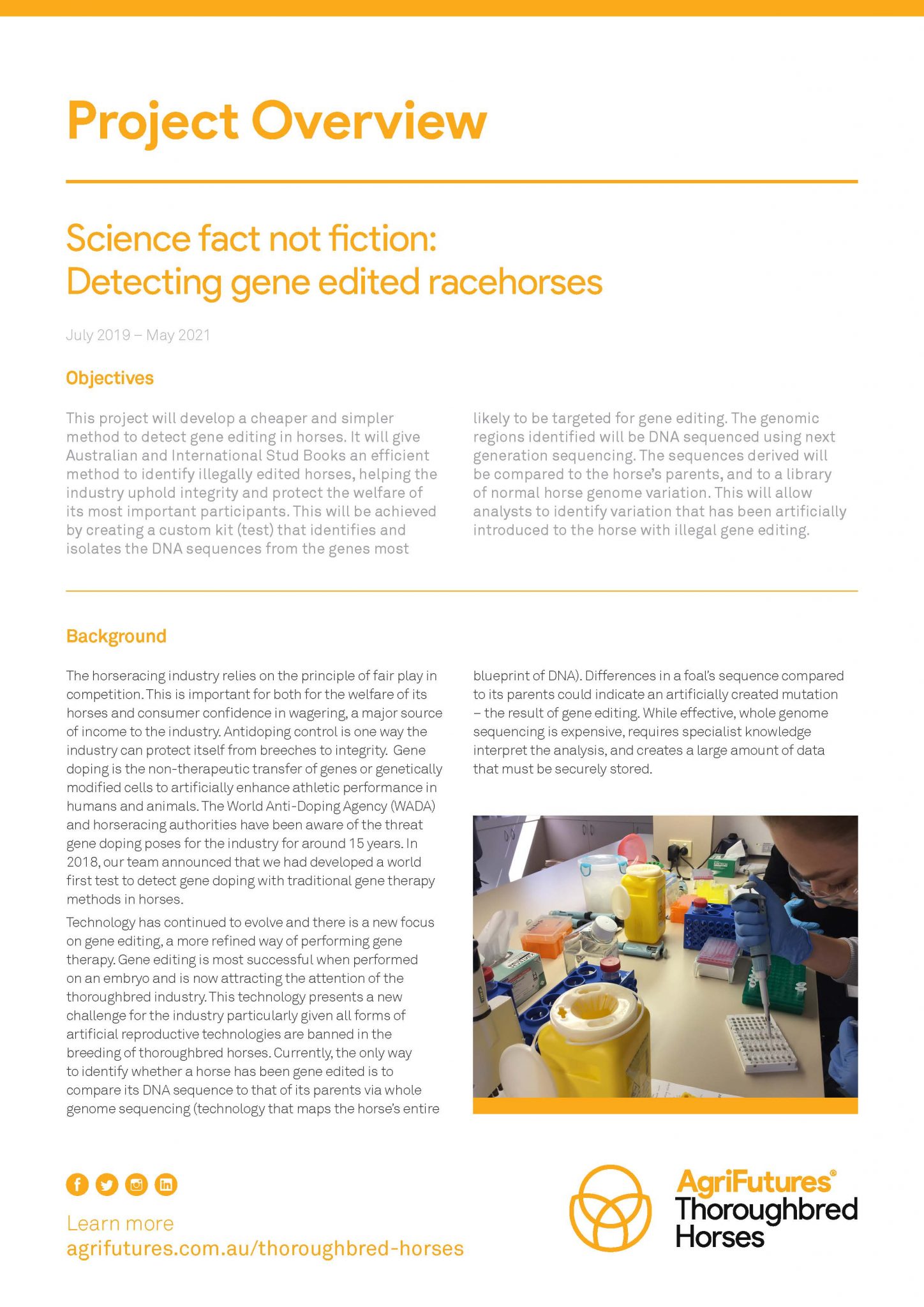Fact sheet: Equine herpes virus
Equine herpes virus (EHV) is a DNA virus found in horses all around the world. There are different strains of EHV, with the most common...
 THOROUGHBRED HORSES
THOROUGHBRED HORSES 
2 pages
Published: 15 Dec 2020
Author(s): Dr Natasha Hamilton
Download report PDF
DownloadThe horseracing industry relies on the principle of fair play in competition. This is important for both for the welfare of its horses and consumer confidence in wagering, a major source of income to the industry. Antidoping control is one way the industry can protect itself from breeches to integrity. Gene doping is the non-therapeutic transfer of genes or genetically modified cells to artificially enhance athletic performance in humans and animals. The World Anti-Doping Agency (WADA) and horseracing authorities have been aware of the threat gene doping poses for the industry for around 15 years. In 2018, our team announced that we had developed a world first test to detect gene doping with traditional gene therapy methods in horses.
Technology has continued to evolve and there is a new focus on gene editing, a more refined way of performing gene therapy. Gene editing is most successful when performed on an embryo and is now attracting the attention of the thoroughbred industry. This technology presents a new challenge for the industry particularly given all forms of artificial reproductive technologies are banned in the breeding of thoroughbred horses. Currently, the only way to identify whether a horse has been gene edited is to compare its DNA sequence to that of its parents via whole genome sequencing (technology that maps the horse’s entire blueprint of DNA). Differences in a foal’s sequence compared to its parents could indicate an artificially created mutation – the result of gene editing. While effective, whole genome sequencing is expensive, requires specialist knowledge interpret the analysis, and creates a large amount of data that must be securely stored.
This project will develop a cheaper and simpler method to detect gene editing in horses. It will give Australian and International Stud Books an efficient method to identify illegally edited horses, helping the industry uphold integrity and protect the welfare of its most important participants.